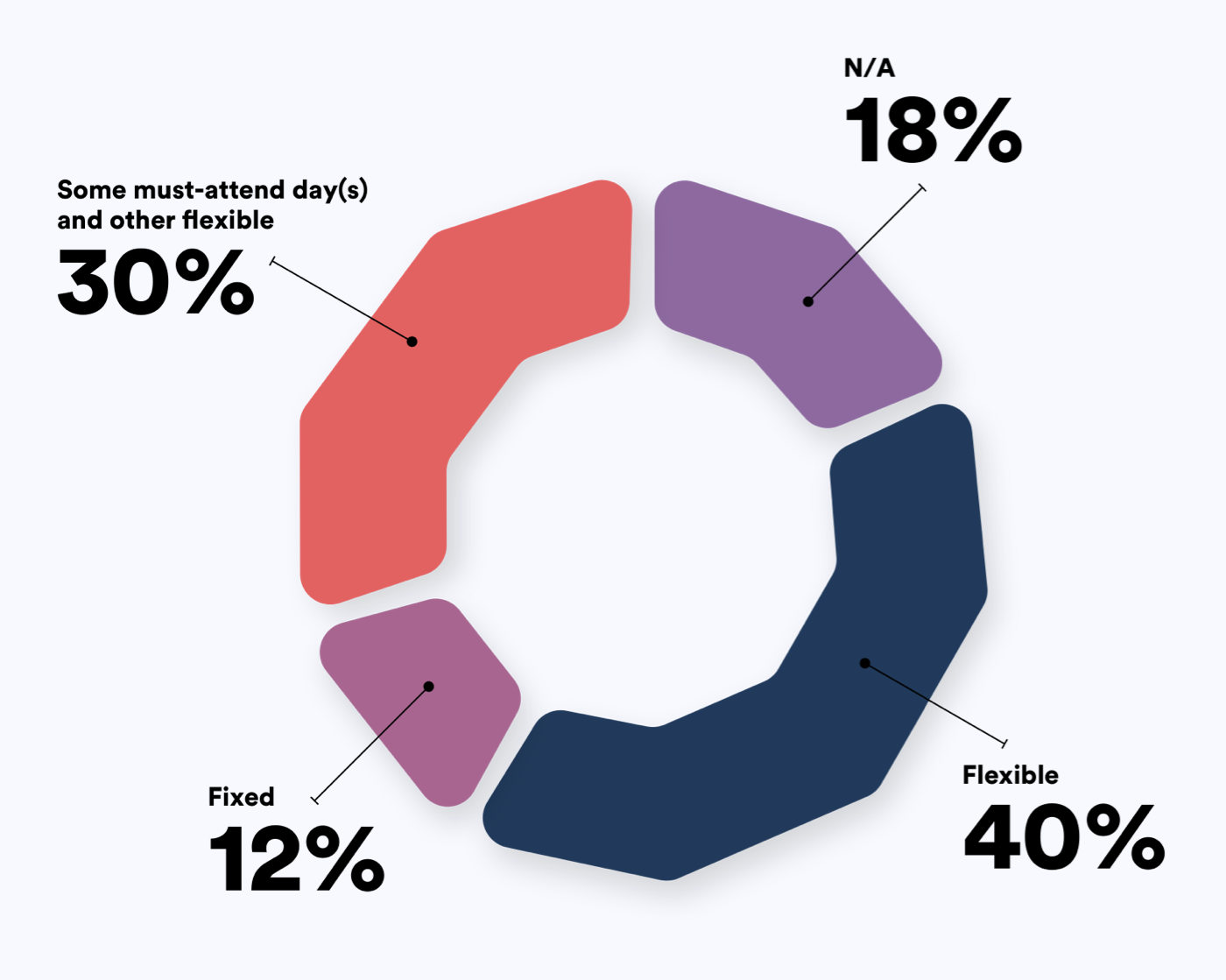
In the ever-changing world of work, only one thing remains certain: the way we work will continue to evolve. The division between office work and remote work has long been a source of contention with recent unprecedented global events, none larger than the COVID-19 pandemic, causing the subject to gain significant traction.
Employers and employees alike are re-evaluating their working preferences and policies. And, as recruiters at the heart of the employment world, this is something we are witnessing ever more frequently at Oliver Bernard.
That is what prompted us to delve deeper into this fascinating topic and pull together our own findings to shed light on how businesses and individuals are adapting to this ever-evolving landscape.
As we delve into the heart of the matter, it is important to firstly ground our discussion in the context of existing data. According to an article from The Guardian, just 12% of UK employees were undertaking some remote work in 2019; but by 2022, this figure had risen to between 25% and 40%, depending on the time of year.
And, interestingly, it is predicted that by 2025, 40% of employees around the world will work from home. However, could the home working movement be waning? Some statistics suggest a recent decline in the number of remote job opportunities, from 21% to 17%.
But what we were eager to learn is, whether these trends are the result of worker or employer inclinations. After all, a striking 86% and 85% of employees believe that the ability to work remotely would contribute to their happiness and a better work-life balance respectively. Despite these statistics, not all employees who can work remotely are doing so. Gallup estimates that only two in 10 remote-capable employees are currently working fully remotely. So, are employers heeding the demands of workers? And is home working more or less fruitful? We hope to reveal more on these questions through examining happiness and productivity factors.
Unearthing the stats
To explore this vast subject, we approached close to 300 individual contributors (ICs), by which we mean singular workers such as a Developer or Engineer. In conjunction with this, we spoke with employers; individuals in senior leadership roles responsible for hiring the kinds of ICs involved in our study. We gained detailed information from just under 150 leaders/hirers.
We provided both groups with a survey, covering an array of questions on subjects including working policies, working practices, and working preferences. And enquired about both real-world situations and ideals/aspirations to get a feel for what is happening, alongside anything intended or desired.
We have already identified that considerable shifts in the way we work have taken place in recent years, so we firstly wanted to learn about the working policies organisations have in place.
Our data disclosed that 12% of tech businesses (those of both ICs and leaders) are enforcing fixed hybrid days. An average of 25% of tech employers are offering full flexibility which allows the individual to decide where they work, and 18% are fully remote. Only 1.2% of those surveyed are having to work fully on-site which is much lower than the ONS’ statistic that 3 in 10 UK companies require staff to work fully on-site in 2023 (half of pre-pandemic figures).

But we were keen to understand how people are feeling about these changes. We next researched the number of ICs who claim they are satisfied with their company’s current working policy.
Our survey results revealed that a promising 69% of workers are happy with their working arrangements. In comparison, 18% are not happy, with the remaining 13% stating that they are awaiting further clarity on their company’s working policy. The latter result is perhaps an indication of organisations attempting to keep up with the ever-changing preferences of workers. And our research also suggested that organisations are implementing policies in line with what people are asking for.
Bridging the Gap
The above just scrapes the surface of the findings of the full report which we are still in the process of collating. We aim to take a deep dive on the various trends as we explore the complexities of working preferences and the factors that influence them.
We will reveal the details on real-life working policies, practices, and preference to provide insightful analysis based on extensive data collected through LinkedIn polls and online surveys.
Be the first to get a completed copy of the report here: https://bit.ly/obremotevsoffice

